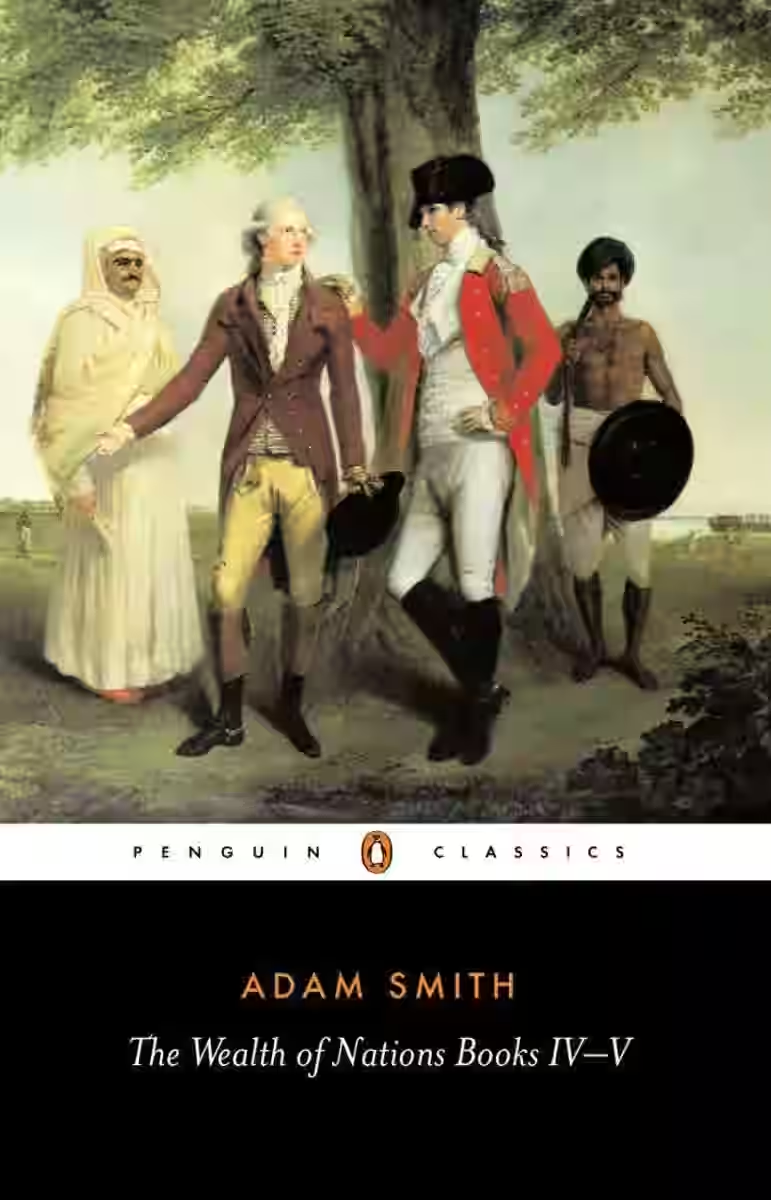The Wealth of Nations
Adam Smith’s The Wealth of Nations, first published in 1776, is regarded as the foundational work of political economy. Originally based on lectures he delivered at the University of Glasgow, the book was released the same year as America’s Declaration of Independence. In this landmark text, Smith critiques the mercantile system, champions free trade and industrial liberty, and famously predicts that America would become one of the world’s leading nations. His work laid the groundwork for classical economics, introducing ideas about markets, labor, and capital that continue to shape economic thought and policy over two centuries later.

In Books I–III of The Wealth of Nations, Adam Smith lays the foundation of classical economics by exploring the nature of labor, productivity, and market systems. He introduces the concept of the "invisible hand" and argues that individual self-interest can promote the public good through free-market mechanisms. Book I focuses on the division of labor and value, Book II on capital and stock, and Book III on the historical evolution of economic systems. Smith’s analysis of productivity, competition, and the role of self-regulation revolutionized economic thought and established key principles that underpin modern capitalism and economic theory.

Books IV–V of The Wealth of Nations critique existing economic policies and propose a framework for limited but essential government intervention. In Book IV, Smith dissects the mercantile system, rejecting trade restrictions and monopolies while advocating for free trade. He critiques colonialism and tariffs, favoring open markets. Book V addresses the role of the state in education, justice, defense, and infrastructure—functions Smith sees as necessary for a stable, prosperous society. These volumes balance his case for laissez-faire economics with the need for public investment, rounding out his vision of a functional, ethical, and productive political economy.